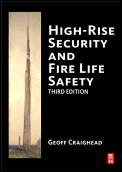City Put Out of Fire Business: Part 2
In this two-part series, Les Gold expertly breaks down a major case for the fire alarm industry

In this two-part series, Les Gold expertly breaks down a major case for the fire alarm industry involving the Lisle-Woodridge Fire Protection District. Part one, in the November issue, analyzed the illegal actions of the district and subsequent injunctions while part two breaks down the resulting modified permanent injunction. Understand why this critical, complex case was decided in favor of the fire alarm industry.
To recap, in 2009, the Lisle-Woodridge Fire Protection District passed an ordinance under which it took over fire alarm monitoring for all commercial properties in the district. Several private alarm companies that had previously provided those services in the district sued. After the hearings, the district passed a new ordinance which repealed the 2009 ordinance and replaced it with a modified set of requirements. The district argued that the new ordinance mooted the controversy; the alarm companies disagreed as did the appeals court. After several more legal twists and turns, a modified permanent injunction was passed in favor of the fire alarm industry. The district court’s rationale for granting the modified permanent injunction is the focus of this column.
The initial permanent injunction required the district to permit the alarm companies to receive and transmit signals directly from property alarm boards (independently of the district) and to retransmit those signals to Du-Comm via central stations. Specifically, the injunction barred the district from: requiring that any fire signals be sent to Station 3 (instead it required that Station 3 be shut down), charging residents for fire protection services (including any fees charged by Du-Comm), selling or leasing fire alarm systems equipment and prohibiting signals from properties from being sent to central stations. The injunction further required the district to allow alarm companies to use any technology equivalent to wire transmission and compliant with the NFPA code, to adopt the most current version of the NFPA code, to refund to property owners fees collected by the district since the 2009 ordinance took effect, to direct Du-Comm to cooperate with the alarm companies so it could receive wireless signals directly from central stations, and to direct Du-Comm to pre-populate its computer database with names and addresses of the private alarm companies’ customers to decrease response time.
The district and Chicago Metro appealed. On appeal the court pointed out that several parts of the injunction exceeded the proper scope of the injunction. The court therefore modified the injunction by striking the portion requiring the district to refund fees to subscribers and requiring the district to adopt the most current version of the NFPA code.
The court found that the major elements of the injunction shutting down the district’s Station 3 and permitting private central stations to receive and transmit alarm signals were well within the district court’s discretion; the district’s plans and requirements for such services were beyond the district’s legal authority and so it was appropriate for the district court to require the district to permit private alarm companies to provide that essential service. Further the court found that the district’s system was less reliable and more dangerous than the private alarm companies’ systems, did not comply with NFPA standards, and interfered with the plaintiffs’ ability to serve their customers.
The new ordinance did not remedy those ills so as to render the dispute moot. The new ordinance would continue to injure the alarm companies by effectively blocking them from providing alarm monitoring services to customers in the district.
Among other things, the court found that under the new ordinance to provide alarm monitoring and signals, the alarm companies must join the district’s wireless network. This network was accessible with only one specific type of transmitter, which was not the type the alarm companies used. Although the alarm companies proposed using several other types of radios in an attempt to work with the district’s wireless requirement, none were compatible with the type of network and receiver used at Station 3. In fact, the new ordinance stated that “alarm companies will have to transmit all of their signals to a ‘Keltron 703 Communications Board’ to gain access to the district’s system.” This requirement means that alarm companies must either replace all of their existing equipment and transmission technology or they could not provide alarm monitoring services to customers in the district. Excluding alarm companies from the monitoring business or making it unduly burdensome for them to participate raised significant concerns about the anti-competitive effects of this requirement, and the new ordinance perpetuated rather than solved the problem.
The court further determined that other evidence that came to the attention of the court suggested that the district would have been motivated to adopt the ordinance not only for the purported safety improvements, but also for financial gain.
A power point presentation to the district’s board proposing the ordinance noted the “revenue stream” as an advantage of a “district-owned network,” and emails from Keltron to a Municipal Alarm Board Forum encouraged the district to adopt its own network because “without the revenue being collected specifically from alarm subscribers for receiving alarm service, municipalities will be laying off dispatchers, firemen inspectors and other people.” The email blamed the central station industry for these problems claiming that it “was on a mission to take away all municipal monitoring and keep the revenue for themselves.”
The court further pointed out that testimony at the hearing revealed much higher out-of-service rates with the district’s monitoring than that of the industry.
The court further pointed out that the evidentiary hearing also revealed that the district’s new wireless network operates on a less reliable frequency than fire and safety signals usually do. The frequency used by the district to connect the Keltron units at properties to Station 3 was an “industrial/business” frequency. The industrial business frequency pool is for commercial activities and other non-emergency activities. In contrast, the public safety pool is for police activities, life support services and other activities involving important and emergency functions, including fire protection. The alarm company expert testified that the industrial/business pool was less reliable than the public safety pool because it was less secure and more susceptible to interruptions. The court considered many other factors.
The bottom line is that the court held that the injunction properly prohibited the district from enacting the basic components of its monitoring plan in light of the facts found at the evidentiary hearing because the district lacked the legal authority to enact its plan.
Finally the court determined that the modified permanent injunction appropriately enjoined the district’s activity with regard to alarm monitoring in the district. The granting of summary judgment to the extent it held that the district could not anoint itself or its chosen vendor as the exclusive provider of the wireless radio transmitters was affirmed. Further, the code did not authorize the district to do so and instead made the property owners responsible for the equipment at their property. Further the modified permanent injunction required the district to permit the alarm companies to receive and transmit signals directly from property alarm boards (independently of the district) and to retransmit those signals to Du-Comm via central stations. The injunction barred the district from requiring that any fire signals be sent to Station 3, requiring that Station 3 be shut down and permitting private central stations to receive and transmit alarm signals.
READERS ASK
Q: I have recently been discussing a potential contract for the installation of a security system with a school district. The school district has presented me with a work order under which terms I would be obligated to pay the “prevailing wage.” What exactly is the prevailing wage and am I obligated to pay a prevailing wage?
A: The prevailing wage anticipates that you are a union company. Normally, a union contract would provide a prevailing wage dictated by the rates charged either to inside wiremen or low voltage installers. The inside wiremen rate is significantly higher than low voltage and in fact most contracts do not include a section for low voltage. Be careful what you sign because if you agree to a prevailing wage and if in fact there is no provision for low voltage, you might ultimately be held responsible not only for the inside wiremen rate, but also for penalties dictated by the jurisdiction in which the contract is entered into.
If in fact you are a member of the union, then make sure that the contract has a provision for low voltage installation. If you are not a union shop, be very careful before entering into a contract with the school district.
To ask Les Gold a question, e-mail sdm@bnpmedia.com.
Looking for a reprint of this article?
From high-res PDFs to custom plaques, order your copy today!










